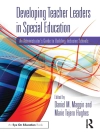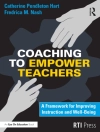While many proponents of transracial adoption claim that American society is increasingly becoming ‘color-blind, ‘ a growing body of research reveals that for transracial adoptees of all backgrounds, racial identity does matter. Rhonda M. Roorda elaborates significantly on that finding, specifically studying the effects of the adoption of black and biracial children by white parents. She incorporates diverse perspectives on transracial adoption by concerned black Americans of various ages, including those who lived through Jim Crow and the Civil Rights era. All her interviewees have been involved either personally or professionally in the lives of transracial adoptees, and they offer strategies for navigating systemic racial inequalities while affirming the importance of black communities in the lives of transracial adoptive families.
In Their Voices is for parents, child-welfare providers, social workers, psychologists, educators, therapists, and adoptees from all backgrounds who seek clarity about this phenomenon. The author examines how social attitudes and federal policies concerning transracial adoption have changed over the last several decades. She also includes suggestions on how to revise transracial adoption policy to better reflect the needs of transracial adoptive families.
Perhaps most important, In Their Voices is packed with advice for parents who are invested in nurturing a positive self-image in their adopted children of color and the crucial perspectives those parents should consider when raising their children. It offers adoptees of color encouragement in overcoming discrimination and explains why a ‘race-neutral’ environment, maintained by so many white parents, is not ideal for adoptees or their families.
İçerik tablosu
Foreword, by Leon W. Chestang
Preface
Acknowledgments
Introduction: Moving Beyond the Controversy of the Transracial Adoption of Black and Biracial Children
Part I. Jim Crow Era (1877–1954)
Evelyn Rhodes, great grandmother and matriarch
W. Wilson Goode Sr., first black mayor of Philadelphia (1984–92)
Cyril C. Pinder, mentor and former National Football League player
Part II. Civil Rights Era (1955–72)
Arthur E. Mc Farlane II, great grandson of W. E. B. Du Bois and advocate for the preservation of cultural heritage
Lora Kay (pseudonym), principal of a charter school in Washington, D.C.
Chester Jackson, professional adoption worker and adoptive father
Henry Allen, professor of sociology
Part III. Post–Civil Rights Era (1973–Present)
Vershawn A. Young, author and scholar
Michelle M. Hughes, adoption attorney and adoptive mother
Mahisha Dellinger, CEO and founder of Curls
Deneta Howland Sells, physician and civil rights advocate
Tabitha, child welfare bureau chief
Bryan Post, CEO of the Post Institute for Family-Centered Therapy and adoptee
Shilease Hofmann, spouse of a transracial adoptee
Chelsey Hines, foster care alumna and transracial adoptee
Demetrius Walker, entrepreneur and cofounder of the d N|BE Apparel
Conclusion
Afterword
Appendix: Multicultural Adoption Plan
Notes
References
Yazar hakkında
Rhonda M. Roorda, M.A., was adopted into a white family and raised with two nonadopted siblings. She is a national speaker on transracial adoption and is the recipient of the 2010 Judge John P. Steketee Adoption Hero Award from the Adoptive Family Support Network (MI). In 2017, Rhonda was awarded the Friend of Children and Youth Award from the North American Council on Adoptable Children (NACAC). With the late Rita J. Simon, she coauthored a landmark trilogy of books on transracial adoption (
In Their Own Voices,
In Their Parents’ Voices, and
In Their Siblings’ Voices). She works as a fund administrator at an educational advocacy organization in Lansing, Michigan.












